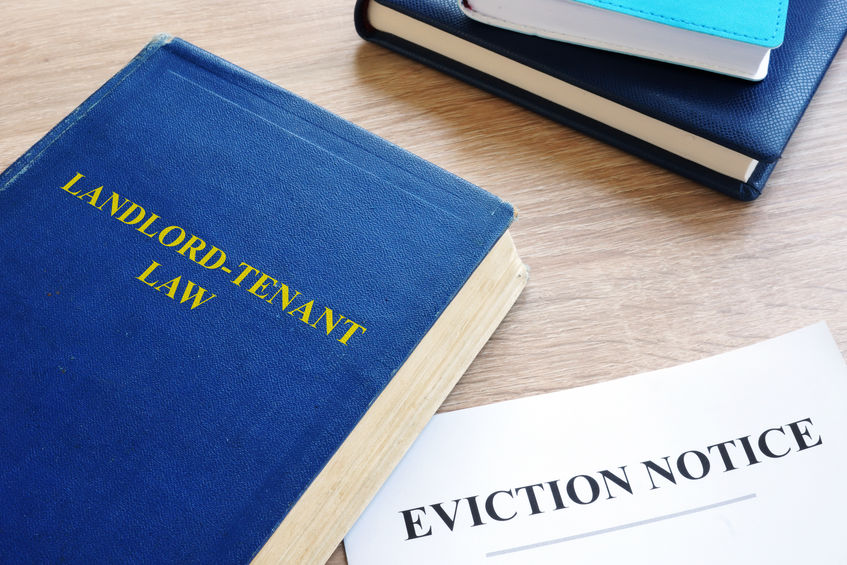Rent is one of the most important monthly expenses that you pay each month. It can also be one of your most expensive bills. What if your funds are low and you cannot pay your landlord? Do you have any options if you fall behind on your rent and are facing eviction?
In Alabama, your landlord must follow a specific process before being able to legally evict you.
Steps to Eviction in Alabama
1. Written Notification of Eviction
Alabama law prohibits eviction without a defined legal cause such as
- Failure to pay rent;
- Violation of the lease or rental agreement; or
- Commission of certain illegal activities.
The law requires your landlord to provide you with written notice of eviction in these situations. Your landlord could give you one of four types of eviction notices:
Seven-Day Notice to Pay Rent: If you have failed to pay rent when it is due, your landlord could give you a seven-day notice to pay rent. This notice means you have to pay the rent in full or face eviction (see Ala. Code § 35-9A-421(b)).
Seven-Day Notice to Remedy: If you have violated your lease or rental agreement, your landlord could give you a seven-day notice to remedy. This notice means you have seven days to remedy the lease or rental agreement violation, or face eviction (see Ala. Code § 35-9A-421(a)).
Seven-Day Unconditional Quit Notice: Your landlord could give you this notice of eviction if you committed certain acts such as:
- intentionally lied in your rental agreement or application
- possessed or used illegal drugs on the premises of the rental unit
- discharged a firearm on the premises of the rental unit (unless in self-defense)
- criminally assaulted a guest or another tenant on the premises of the rental unit (unless in self-defense)
Under this notice, you will have seven days to move out or face eviction (see Ala. Code § 35-9A-421).
Thirty-Day Notice to Quit: If you have a month-to-month lease or rental agreement, you could receive this notification if your landlord wishes to end the agreement. If you received this notification, you will have 30 days to move out or face eviction (see Ala. Code § 35-9A-441).
2. Court Approval of Eviction
You should know that you cannot be automatically evicted when the time of the eviction notice you received runs out (i.e. seven days, 30 days). An eviction is a legal process. This means that if you do not comply with the eviction notice within its timeframe, your landlord must go to court and file an eviction lawsuit against you.
If your landlord files an eviction lawsuit, you will receive a copy of the complaint from the court and an opportunity to respond if you want a hearing. Your response is called an answer. If you do not answer the complaint, the landlord wins be a default and the landlord receives a judgment for eviction and can evict you at that point. If you file an answer, the court will set a hearing and the judge will listen to both sides of the case to determine if there are legal grounds for eviction. If you do not have to attend the eviction hearing, it is likely the judge will rule in the landlord’s favor because you are not there to present your side.
The landlord could also receive money damages from you for past due rent.
3. Removal by Law Enforcement
If the judge approves the landlord’s right to evict you, the judge will issue an order to remove you and your belongings from the premises. A law enforcement officer is the only person who can remove you or your belongings. It is illegal for the landlord to remove you from the premises.
Getting Help to Stop an Eviction
If you are delinquent on your rent and are facing eviction, filing bankruptcy could help you avoid eviction. But, you must act fast and reach out to an experienced bankruptcy attorney. If you receive a complaint about eviction, there is a very short time to answer. You should contact a bankruptcy attorney immediately when you receive the complaint.
An experienced bankruptcy lawyer will know if bankruptcy is the best option for you and how to advise you in reaching a decision as to whether to file for bankruptcy.
Brock & Stout’s bankruptcy attorneys have over 25 years of experience helping clients get a financial fresh start through bankruptcy. If you are in Birmingham or anywhere in Alabama, contact us for a free evaluation of your financial situation to see if we can help you.

